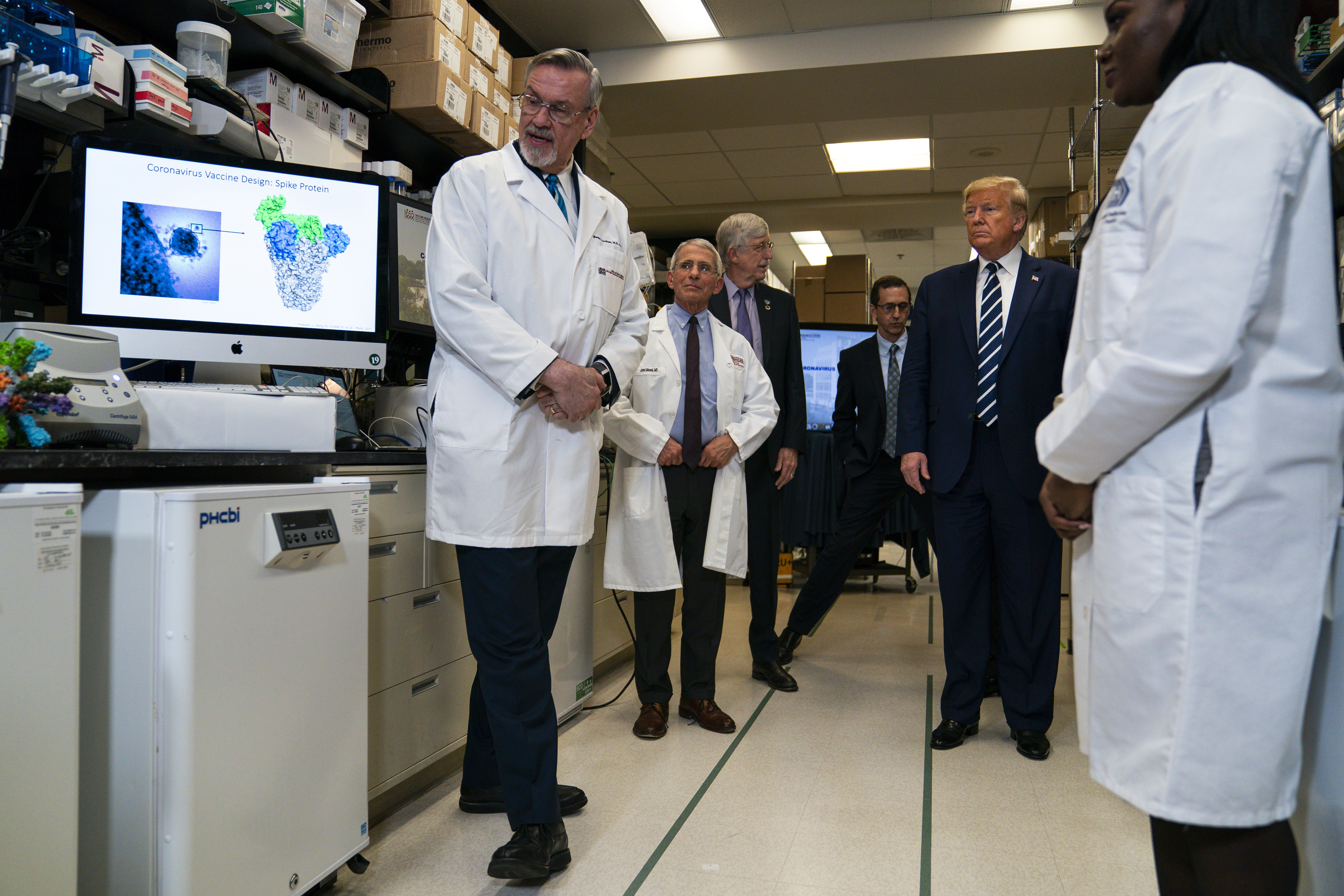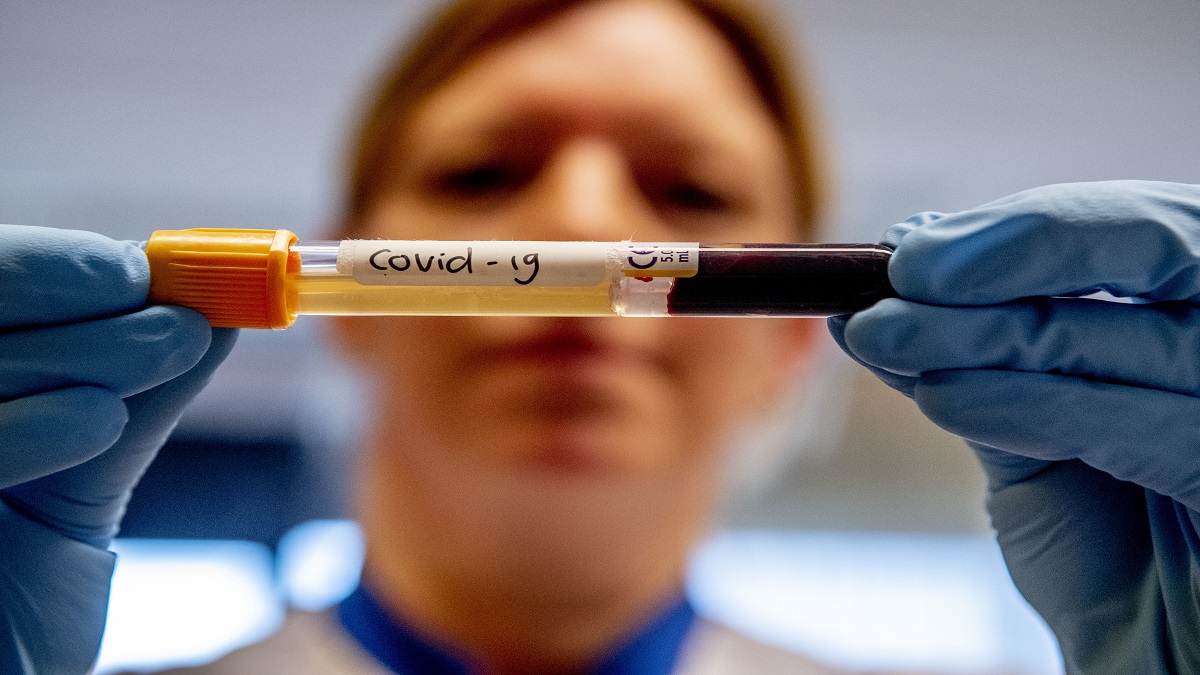What to Know
- Due to the increase in numbers of COVID-19 cases, New York is set to launch a clinical trial for an experimental drug treatment Tuesday
- The FDA cleared the way for New York to experiment with the malaria and lupus drug hydroxychloroquine and the antibiotic Zithromax (generic name azithromycin) as a treatment for COVID-19
- New York also plans to be the nation's first state to try to heal critically ill patients using the antibodies extracted from the plasma of individuals who have recovered from the virus
As more and more cases emerge, there is a growing and desperate need to not only adequately treat, but to find a cure for COVID-19. This is true particularly in New York, which is grappling with skyrocketing coronavirus cases.
Due to the increase in numbers, New York is set to launch a clinical trial for an experimental drug treatment Tuesday, March 24. It also plans to be the nation's first state to try to heal critically ill patients using the antibodies extracted from the plasma of individuals who have recovered from the virus.
The federal government cleared the way for New York to experiment with the malaria and lupus drug hydroxychloroquine and the antibiotic Zithromax (generic name azithromycin) as a treatment for COVID-19, Gov. Andrew Cuomo said over the weekend.
CURRENT TREATMENT FOR COVID-19
Although the US Food and Drug Administration cleared the way for New York to experiment with the drugs, there are currently no FDA-approved drugs specifically for the treatment of patients with COVID-19 as of today, according to the CDC.
Currently, clinical management for those who have COVID-19 includes infection prevention, control measures and supportive care, such as supplementary oxygen and ventilatory support in the most dire of cases.
However, the CDC notes that there are a number of drugs that have been approved for other ailments as well as several investigational drugs that are being studied in clinical trials taking place across the world. Those drugs include hydroxycloroquine and azithromycin.
There is currently no vaccine against COVID-19.
HYDROXYCLOROQUINE AND CHLOROQUINE
Hydroxychloroquine and chloroquine are oral prescription drugs that have been used for treatment of malaria and certain inflammatory conditions like lupus. According to the CDC, chloroquine has been used for malaria treatment and chemoprophylaxis, meanwhile hydroxychloroquine is also used for treatment of rheumatoid arthritis, systemic lupus erythematosus and porphyria cutanea tarda.
Both drugs have in-vitro activity against SARS-CoV, SARS-CoV-2, and other coronaviruses, with hydroxychloroquine having relatively higher potency against SARS-CoV-2 (the virus that produces COVID-19 disease), according to the CDC. Chloroquine or hydroxychloroquine are currently recommended for the treatment of hospitalized COVID-19 patients in several countries.
Due to its higher in-vitro activity against SARS-CoV-2 during studies and its wider availability in the United States compared with chloroquine, hydroxychloroquine has been used in hospitalized COVID-19 patients on an uncontrolled basis, the CDC notes.
In one small study, according to the CDC, it was reported that hydroxychloroquine alone or in combination with azithromycin reduced detection of SARS-CoV-2 RNA in upper respiratory tract specimens.
Currently, hydroxychloroquine is under investigation in clinical trials for SARS-CoV-2 infection, and treatment of patients with mild, moderate, and severe COVID-19, according to the CDC.
The main concerns of using either chloroquine and hydroxychloroquine is cardiotoxicity, especially prolonged QT syndrome, which is a heart rhythm condition that can cause fast, chaotic heartbeats. This concern is particularly more acute in patients with underlying health issues and immunosuppression, according to the CDC.
Because of these concerns, CDC urges caution when considering these drugs in patients with chronic medical conditions or those who are receiving medications that might interact and cause arrythmias -- problems with the heartbeat's rate or rhythm.
However, the agency notes that it has been reportedly well-tolerated in COVID-19 patients.
President Donald Trump touted the drug combination last week.
However, infectious disease experts say it's far too soon to reach such a conclusion. Nevertheless, the publicity surrounding hydroxychloroquine has fueled shortages across the country, NBC News reports, leaving those who desperately need it, like individuals with lupus or rheumatoid arthritis, without their much-needed medication.
In at least one case of self-medication, a couple in their 60s took chloroquine phosphate in an attempt to prevent COVID-19. The man and woman fell critically ill, and the man ultimately passed away.
The toxic ingredient they consumed was not the medication form of chloroquine, but rather it was an ingredient used as parasite treatment for fish.
The man's wife told NBC News she'd watched televised briefings during which Trump touted the potential benefits of chloroquine.
ZITHROMAX (AZITHROMYCIN)
Zithromax (azithromycin) is an antibiotic that fights bacterial infections including respiratory infections, skin infections, ear infections, strep throat, community-acquired pneumonia and sexually transmitted diseases.
Similar to the possible side effects of hydrocychloroquine, those who use azithromycin may experience a life-threatening fast heart rate, especially in older adults.
Additional side effects include liver problems; allergic reactions; diarrhea; nausea, vomiting, stomach pain; or headache.
CONVALESCENT PLASMA
On Monday, Cuomo added a more dated technique, convalescent plasma, as another alternative.
Cuomo explained that the FDA approved the NYS DOH to proceed with the experimental technique on a "compassionate care basis." The treatment, known as convalescent plasma, dates back hundreds of years and was used during the flu epidemic of 1918 — before modern vaccines and antiviral drugs, NBC News reports.
"What it does is that it takes the plasma from a person who has been infected with the virus, processes the plasma and injects the antibodies into a person who is sick," Cuomo said. "There have been tests that show when a person is injected with the antibodies that then stimulates and promotes their immune system agains that disease. It’s only a trial. It’s a trial for people who are in serious condition."
The New York Blood Center (NYBC) will be the first blood center to collect blood plasma donations from people who have recovered from COVID-19 to treat other critically ill patients.
The Mount Sinai Health System said this week it would begin using antibodies from those who recovered on critically ill COVID-19 patients, in a process called plasmapheresis. The medical group said the treatment had been deemed successful in China.
COVID-19 IN NEW YORK
On Tuesday, the day that the experimental drug treatment rolled out in the state, Cuomo sounded his loudest alarm yet on New York's coronavirus crisis, warning the curve was showing no signs of slowing down and flattening out, but rather it was rising faster (doubling every three days) and more dangerously than initially projected.
He said last week that peak infection was 45 days out. However, on Tuesday he said that the state may see it in as quickly as two weeks.
New York state saw its case total hit 25,665 by Tuesday, March 24 as the death toll climbed to 189. New York City has more than 14,900 cases alone, adding another 2,500 overnight as its death toll surged to at least 131.
The five boroughs now account for 60 percent of the state's total and about 35 percent of all cases in America.
LATEST ON VACCINE AGAINST COVID-19
Although there is currently no vaccine against COVID-19, a clinical trial evaluating a vaccine designed to protect against the novel coronavirus also began the week of March 16.
A government official said the first participant in the trial will receive the experimental vaccine that day. The National Institutes of Health is funding the trial that is taking place at a Kaiser Permanente research facility in Seattle. Testing will begin with 45 young, healthy volunteers with different doses of shots co-developed by NIH and Moderna Inc. Public health officials say it will take a year to 18 months to fully validate any potential vaccine.
On March 30, Johnson & Johnson also announced it selected a lead vaccine candidate and says it expects to begin Phase 1 human clinical trials by September at the latest.
"We're very excited about the announcement that we're making this morning about the partnership we're doing with Barta, the government agency responsible for pandemics and vaccines and what we're doing to accelerate our development but also our production for something against COVID-19," Johnson & Johnson CEO Alex Gorsky said during an interview.
"We expect to have results, interim results from our trials likely in December at the latest early January. That should put us in position early in 2021 to have hundreds of millions of doses available and by the end of the year up to 1 billion. That's our plan," Gorsky went on to say.
For more information on potential vaccines and how close we are to a vaccine against COVID-19, click here.



